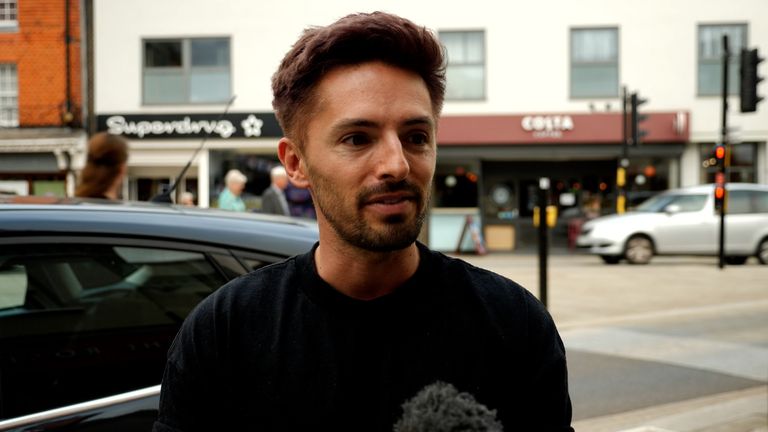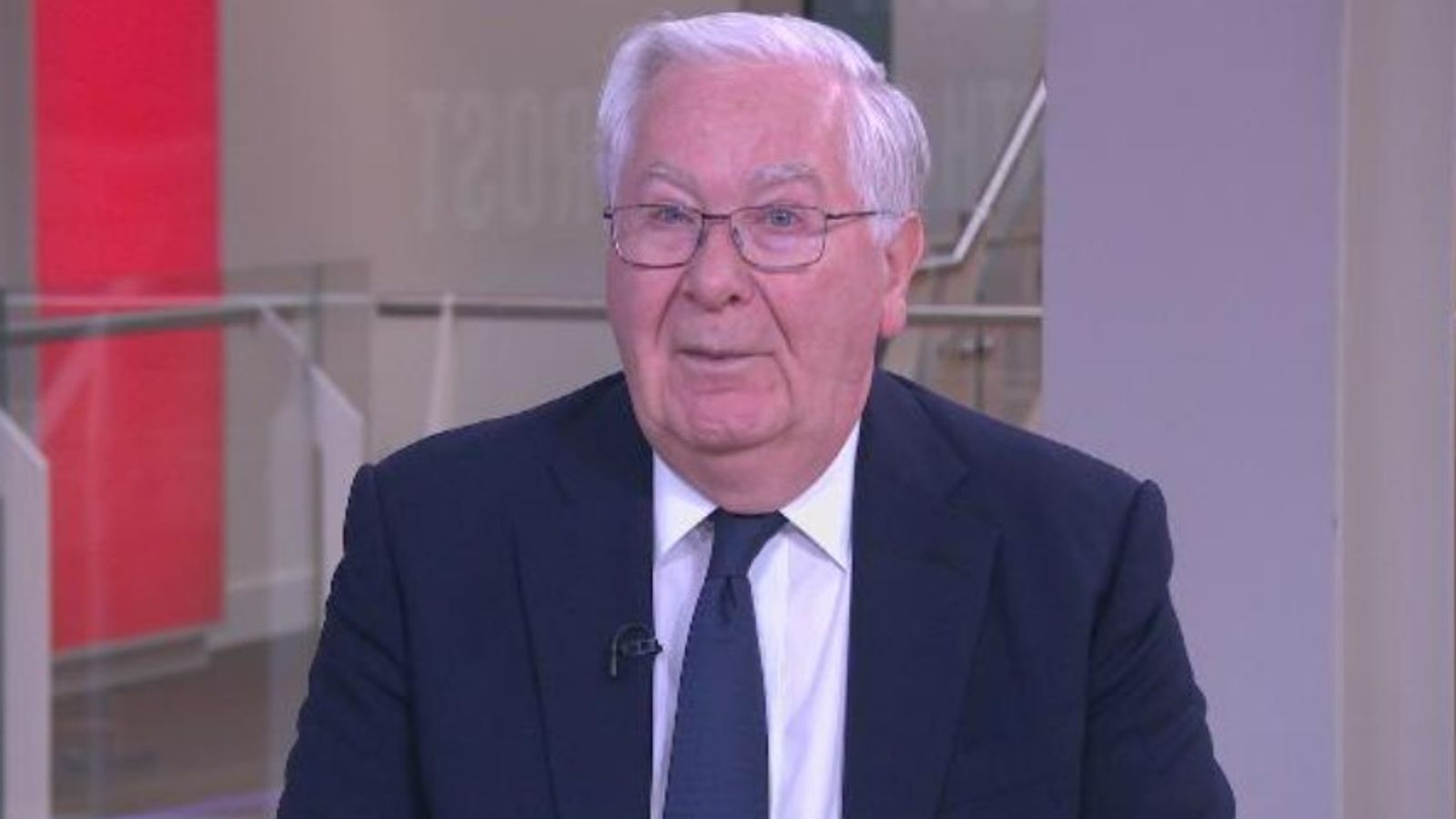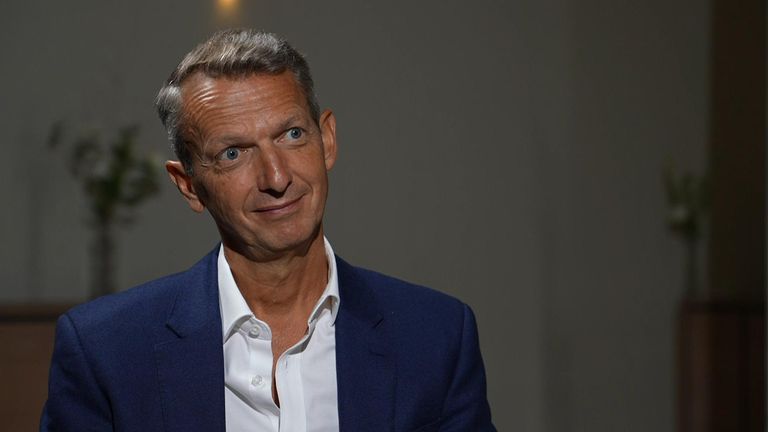
A former governor of the Bank of England has told Sky News that while it was too slow to turn off the stimulus taps after the COVID pandemic, its actions to tame inflation are now “in the right area.”
Lord Mervyn King, who presided over the Bank‘s response to the global financial crisis in 2008, was speaking as current policymakers prepare to meet ahead of the next interest rate decision on Thursday.
Financial markets and economists currently expect a 15th consecutive rise, by 0.25 percentage points, taking the rate to 5.5%, a 2007 high.
Lord King said it was not for him to judge whether that would be the correct decision, as he did not have access to the same data available to the rate-setting committee.
But he signalled such an increase would not be punitive given the dramatic upwards shift witnessed since December 2021.
“I don’t think it matters a great deal”, he said, “We’re in the right ballpark now”, hinting at support for a cautious trajectory in the face of a weakening economy.
Any hike would inflict more pain on borrowers including the minority of households still on mortgage deals that track the Bank’s interest rate, exacerbating the wider, and persistent, cost of living crisis.
The cost of new fixed rate deals has come down in recent weeks, from 2008 highs, in line with forecasts for a lower Bank rate peak than had been expected during the summer.
Nevertheless, the average two-year fixed residential mortgage rate still stands at 6.66%, according to the Moneyfacts website.
The average five-year deal also remains above 6%.
The Bank’s monetary policy committee (MPC) is now widely predicted to pause for breath after the anticipated hike this week, in line with comments by governor Andrew Bailey earlier this month that the peak rate was close.
Another rise could be seen as justified by the rate-setters due to the fact that wages are continuing to rise at a record pace.
Data on Wednesday, released just before the MPC meeting begins, is tipped to show a tick upwards in the headline rate of inflation during August.
The Bank is facing a delicate balancing act in tackling inflationary pressures in the economy by cooling demand but trying to avert a dive towards recession, and an inevitable loss of employment, at the same time.
It has faced criticism over its handling of the inflation problem and been accused of being too slow to turn off COVID-era stimulus when the pace of price growth accelerated as economies got back in gear after lockdowns.
Bank rate was not raised from its record low 0.1% until December 2021.
Lord King said not only the Bank of England but other major central banks were guilty of failing to raise rates quickly enough.
The Bank’s former chief economist Andy Haldane previously joined that chorus of criticism in an interview with Sky News, accusing the MPC of fuelling inflation at that time.
Mr Bailey admitted in May that there were “very big lessons to learn” for monetary policy in a world of big shocks – with the MPC forced to grapple a host of challenges from COVID lockdowns to the impact of Russia’s war in Ukraine in the space of just two years.
The Bank has announced a review of its staff forecasting model, led by former US Federal Reserve chair Ben Bernanke.








